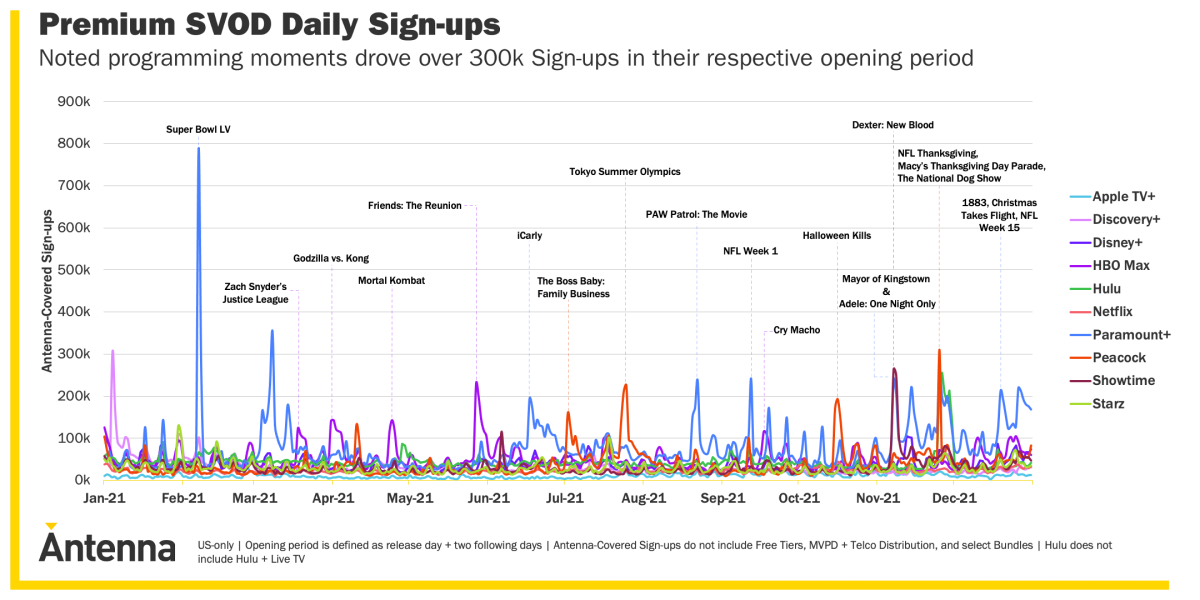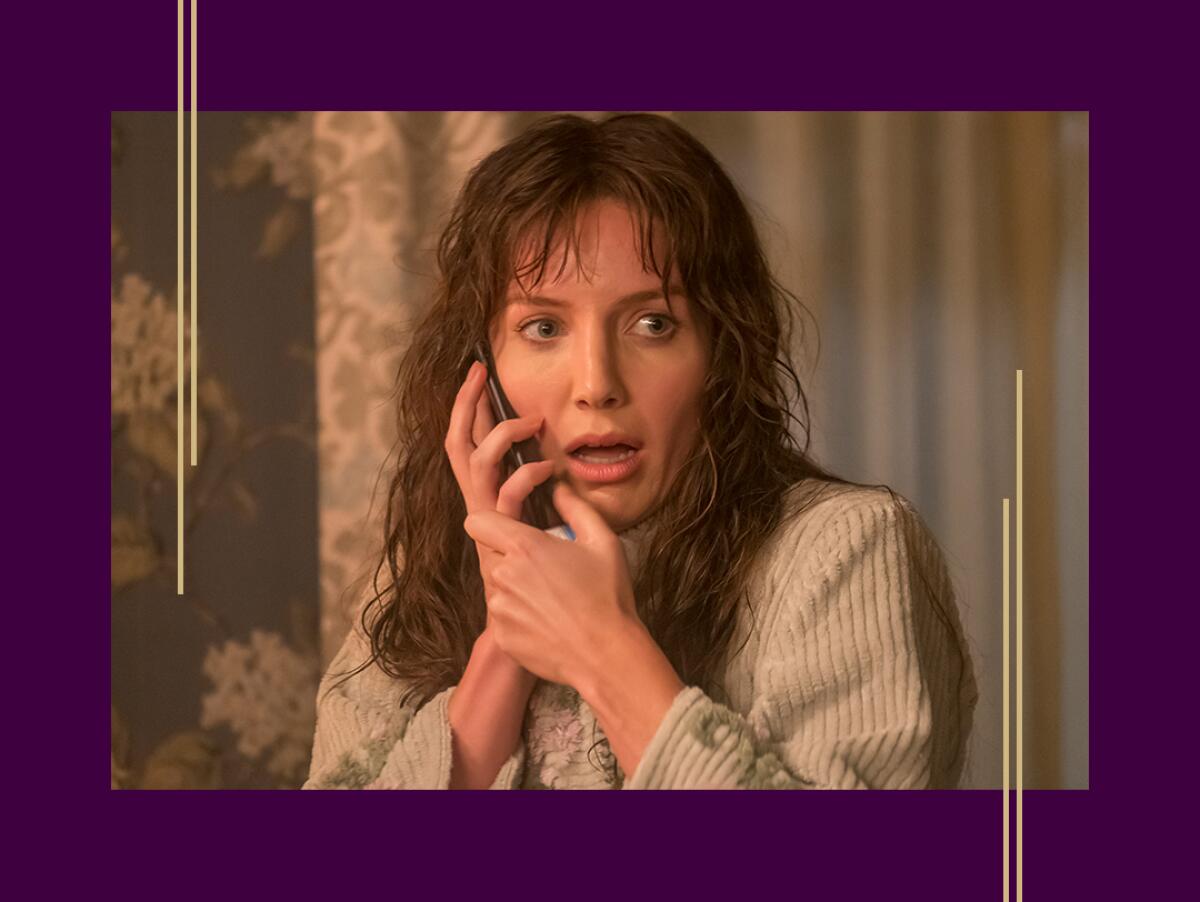Wide Shot: Warners, Village people and ‘The Matrix,’ relitigated

- Share via
Welcome to the Feb. 22, 2022, edition of the Wide Shot newsletter about the business of entertainment. If this was forwarded to you, sign up here to get it in your inbox.
Until recently, it was common practice for movie studios to bring in co-financiers to offset the risk of producing a broad and diverse slate of movies for theaters.
That has changed somewhat during the past several years for a number of reasons, including the increasing focus on surefire franchises and the shift of film to streaming services.
The idea of a co-financing deal is this. The studio (say, Warner Bros.) allows the financial partner (say, Wide Shot Capital Management Inc.) to invest in a wide range of movies, from “Wonder Woman 6” to the latest midbudget original adult-skewing Oscar-bait drama or high-concept space adventure.
When the movies are hits at the box office, everyone makes money. When they bomb, the financial partner absorbs some of the pain for the studio.
Those kinds of deals have gone by the wayside in recent years. Studios are no longer so inclined to share the profits of their guaranteed hits. Why have a co-investor in the next DC movie if you’re pretty certain it’s going to work? As for those risky adult-skewing dramas, a lot of them are going to streaming services like HBO Max, so box office isn’t a concern. It’s all about driving subscriptions.
Which leads us to Village Roadshow Entertainment Group’s lawsuit against Warner Bros., which got a lot of attention when it was filed this month. Village Roadshow has co-financed 91 movies with Warner Bros. since 1997, paying $4.5 billion to do so. Now, it’s essentially accusing the Burbank studio of trying to tear up the 25-year partnership.
Yes, the Village people are mad about “The Matrix Resurrections” going to HBO Max and theaters simultaneously, which presumably contributed to the film bombing at the box office.
But they’re equally peeved about their rights to derivative works — the sequels, reboots and TV adaptations that have become such a cornerstone of the industry.
Village Roadshow said in its complaint that Warner Bros. has prevented it from participating in projects such as the upcoming film “Wonka” and an “Edge of Tomorrow” TV show.
Warner Bros. has denied wrongdoing, calling Village Roadshow’s actions “duplicitous” and tarring the lawsuit as “contrived.” We wrote about the dispute in depth this week.
The widening fight is a window into the dramatic company overhauls and strategic shifts that have defined the entertainment business during the last several years. Those include the race to streaming, changes in company DNA and the unwinding of traditional co-financing deals as studios increasingly want to control established franchises for reboots and spinoffs. As these trends accelerate, such battles likely aren’t going away.
Many industry insiders point out that these two companies aren’t the same as they were when they first started co-funding movies more than two decades ago.
Village Roadshow, previously the film subsidiary of the Australian entertainment giant founded by Roc Kirby, is now controlled by private equity firm Vine Alternative Investments. Warner Bros. has gone through all kinds of corporate upheaval and management shakeups and is about to change hands again, this time from AT&T to Discovery.
This all comes after the Scarlett Johansson lawsuit against Walt Disney Co., in which she accused the company of depriving her of box office bonuses by making “Black Widow” available on Disney+ for a $30 purchase while it was in theaters. The two sides settled in September.
The Village Roadshow-Warner Bros. battle, which will probably be resolved through settlement or arbitration, is even bigger because it involves intellectual property ownership and derivative rights. Hollywood financiers and producers are sure to watch this one closely.
News and stuff

— From atomic blast to the Rodney King beating, local TV station KTLA helped shape L.A. and television history, reports Meg James.
— “Rust” update: Halyna Hutchins’ family sues Alec Baldwin. Lawyers for Hutchins’ husband Matthew filed a wrongful death lawsuit against Baldwin and numerous producers involved in the making of “Rust” in New Mexico.
— This dispute is no joke. Comedians like Bill Engvall, as well as the estates of Robin Williams and George Carlin, say they’re getting zilch from streams of their jokes on streaming services such as Sirius XM-owned Pandora. Meanwhile, Joe Rogan is getting at least $100 million from Spotify to license his show. No wonder everyone has a podcast.
— Spotify’s splashy podcast deals — with stars from Ava DuVernay to Kim Kardashian — made headlines, but not shows. Insiders and leaked deal memos reveal a creative “bottleneck,” shifting strategy and internal tumult. (Insider)
— Speaking of which... Pew Research Center data shows that nearly a quarter of Americans at least sometimes get their news from podcasts.
— New back-to-work deal requires boosters for vaccinated film crews. Anousha Sakoui provides an update on Hollywood’s production protocols.
— Yeezus... Netflix’s Kanye West doc “Jeen-Yuhs” is no vanity project, writes Lorraine Ali. It’s a candid look at how he lost his way.
Number of the week

Shari Redstone, Bob Bakish and the team at ViacomCBS — now Paramount Global, or just Paramount — sure gave it their all to impress investors during their big event last week.
Management raised projections on streaming growth, saying Paramount+ would hit 100 million subscribers worldwide by 2024. Also, they explained how they would get there by announcing a slew of programming, including more from franchises like “Yellowstone,” “Beavis and Butt-Head” and “SEAL Team.”
They even changed the name of the company to Paramount, reflecting its iconic moviemaking past and its streaming future, as my colleague Meg James wrote.
How’d Wall Street respond? Shares fell nearly 18% Wednesday after the big presentation, which was widely seen as a sign that the company is all-in on its direct-to-consumer business. Oof...
What went wrong?
There’s clearly still plenty of skepticism that, as LightShed Partners’ Rich Greenfield put it on Twitter, “anyone not named Disney+ or HBO Max can compete with tech giants in streaming like Netflix, Amazon & Apple.”
“Yet,” he continued, “its 100% clear from today’s event that @ViacomCBS (soon to be Paramount) is not giving up, regardless of whether that is right decision.”
Changing the name helps ViacomCBS with its brand-recognition problem. At least most people have heard of a movie studio called Paramount. But the Paramount identity is still not as broadly understood as Disney or HBO, especially after years of mismanagement before the CBS merger.
Plus, it’s going to take a lot of spending on content and marketing to catch up with the big players. It’s an open question whether Paramount can afford to compete on its own, while cannibalizing its linear TV businesses.
More numbers:

- 112.3 million: Total average viewership across TV and streaming platforms for NBC’s telecast of the Los Angeles Rams’ 23-20 victory over the Cincinnati Bengals in Super Bowl LVI, which ranks second to the 114.4 million viewers for NBC’s Super Bowl telecast in 2015. Let’s break it down:
- 101.1 million: The TV audience counted by Nielsen, up from 91.6 million in 2021.
- 11.2 million: The audience across streaming platforms, making it the most-streamed live event in U.S. history.
- $51 million: The four-day domestic box office opening weekend for Sony Pictures’ new video game-based action movie “Uncharted.” The result lends more evidence to the “pro” column for the question, “Is Tom Holland a movie star?”
Sheer chart attack
For streaming services, nothing brings in subscribers like dropping high-profile shows and movies. Check out this chart from analytics firm Antenna, which releases its big annual streaming report next week. The font is small, so you might want to open the image in a new tab and zoom in.

The chart labels spikes in signups that came with major “programming moments,” or times when a service added a big show or film. Unsurprisingly, the top driver of signups in 2021 was the Super Bowl — the most-watched TV show every year — on Paramount+.
Other powerful content drops included “Zack Snyder’s Justice League” and “Friends: The Reunion” (HBO Max), “Halloween Kills” and the Tokyo Summer Olympics (Peacock), and “Mayor of Kingstown” and “Adele: One Night Only” (Paramount+).
Importantly, the chart doesn’t show how many users canceled after watching the thing they signed up for, which is a challenge for a lot of services.
Also, readers may notice that the chart does not show big spikes for shows like “Squid Game” (Netflix) and “The Falcon and the Winter Soldier” (Disney), which we know were popular based on other data. That’s probably because those services have subscriber bases big enough that a single piece of content doesn’t dramatically affect signups.
Says Antenna’s media and entertainment lead Brendan Brady: “The data unveils an intuitive but important dynamic, which is that the more well-penetrated a service is, the less malleable their daily signups are to content events.”
Finally...

Was “Malignant” unfairly maligned? My colleague Jen Yamato has been banging the drum for James Wan’s unhinged horror movie for months. It’s streaming on HBO Max again, finally, so tell me what you think. I’ll say this: It makes effective use of the Pixies’ “Where Is My Mind?” covered by Safari Riot. You can hear that extremely unnerving track here.
Inside the business of entertainment
The Wide Shot brings you news, analysis and insights on everything from streaming wars to production — and what it all means for the future.
You may occasionally receive promotional content from the Los Angeles Times.




